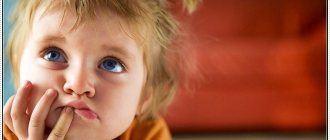A family is a fixed union that takes its basis in marital relationships, where spouses and children are connected by a common economic budget, household and everyday life. The parent-child relationship is represented by the foundation of the family. It is an important institution in society that interacts with government agencies and other institutions. According to sociology, the family is represented by 2 positions - a social group and a social institution.
- As a social group
, the object of observation is the relationships within the clan. - As a social institution
- clarification of the social functions of the family, the connection of the family with society.
The institution of family is represented by many other institutions (marriage). There are known incidents when the institution of marriage is not interconnected with the institution of family. This relationship received the term – civil marriage.
Family
- a social group united by a single task, functioning on the basis of the relationship between spouses and their fulfillment of social roles.
Family social status
– a status that defines an individual’s position not only in family relationships, but also in society. The following statuses are distinguished: marital, parental, child, intergenerational.
Family social role
- behavior expected from an individual, according to his status in society.
Social functions of the family
| Functions | Content |
| Reproductive | – reproduction of similar individuals. The family reproduces its kind, provides society with replacement people. |
| Socialization | – the introduction of the individual to society. |
| Existential | – ensuring the safety of family members, care. |
| Economic | – is based on the production of material goods and products through common efforts, maintaining economic stability and satisfying needs. |
| Primary social control | – value and ethical standards of behavior within the family in different areas of life. |
| Recreational | – protection, strengthening, restoration of the spiritual, physical component of the individual. |
| Social status | – the acquisition of social roles in society ensures the strengthening of the social structure. |
| Leisure | – organization of free time in the form of entertainment. |
| Hedonistic | – the need for care, love, a feeling of happiness. |
Marriage is a legally formalized relationship between spouses that regulates their rights and functions in family life. In addition, marriage is represented by a social institution that sets the rules of behavior in intrafamily relationships.
Reproductive and educational functions
The reproductive function is realized through the reproduction of offspring. Society cannot exist unless one generation is replaced by another.
Reproductive function is greatly influenced by political instability and unfavorable socio-economic changes. Their impact is expressed in
Are you an expert in this subject area? We invite you to become the author of the Directory Working Conditions
- expanding the scale of low material income among families with children;
- reduction of minimum social payments and real income levels;
- strengthening property and income differentiation;
- growing regional differences in key indicators of well-being;
- deterioration of the age structure of the population;
- decline in the working-age population.
The educational function is associated with the socialization of young people, the transfer to them of experience, knowledge, and moral values of the older generation.
The unit of primary socialization is the family, since it is the parents:
- instill good manners in their children,
- convey life experience
- teach crafts,
- lay the foundations of speaking skills,
- exercise control over children's actions.
A number of factors have a negative impact on the educational function of the family:
- single-parent family;
- poor relationship between parents;
- insufficient knowledge and skills in raising children;
- interference of relatives in the upbringing processes.
Types of marriage
- Group
marriage - characterized by the marital relations of several men and women in primitive times. - Polygamous
marriage is a relationship between one spouse and several. Polygamy is divided into: polygyny - the relationship of one man with several women, polyandry - the relationship of one woman with several men. - Monogamous
marriage is a standard marriage between one man and one woman. Marriages are common in Christian families and democratic states where the practice of gender equality is common. Monogamous marriage is less common in the world than polygamous marriage. - Couple
marriage is equality between spouses during the period of change from matriarchy to patriarchy. Dating from barbarian times. - Exogamous
marriage is a marriage concluded according to traditions, within the same social stratum, community. Marriages take place outside the clan group. - Endogamous
marriage is a marriage concluded according to traditions in tribes, nations, castes.
There are a large number of marriages: for love, by agreement, guest marriage, etc.
Economic function
The economic function includes various aspects of family life:
Finished works on a similar topic
Course work Functions of the family in sociology 430 ₽ Abstract Functions of the family in sociology 280 ₽ Test work Functions of the family in sociology 240 ₽
Receive completed work or specialist advice on your educational project Find out the cost
- organization of family consumption,
- housekeeping;
- planning and use of the family budget;
- distribution of homework;
- care and support for the elderly and disabled.
The implementation of this function is more influenced by the family’s monetary income and social guarantees provided by the state.
Basic functions of the family article
GBOU school No. 655 Department of preschool education of the Primorsky district
"Basic functions of the family"
Completed by: Akulova A. A.
The existence of the family, like all social institutions, is determined by social needs. Like all social institutions, the family is a small group that develops and functions according to its own laws. It depends on society, the existing political system, economic, social and religious relations. And at the same time, the family is a relatively independent unit of society.
The family serves to satisfy certain needs, this is precisely noted in the definition of family by N. Ya. Solovyov: “A family is a combination of extremely important human needs (primarily sexual, childbearing, economic and consumer, emotional, moral, aesthetic, psychological, which it is capable of satisfy in a selective, sustainable, repeatable manner.”
Family functions are an area of family activity that is directly related to meeting the specific needs of its members.
• 1. Reproductive function of the family
The family, by its very nature, has the function of population reproduction, through which the biological reproduction of society is achieved: satisfying the need for children. The reproductive function performs two main tasks: social - biological reproduction of the population, and individual - meeting the need for children. It is based on the satisfaction of physiological and sexual needs that encourage people of opposite sexes to unite in a family union.
• 2. Household function of the family
The nature of the family’s performance of household functions has a direct impact on the moral and psychological climate of the family group and on family upbringing. Everything matters here, from the sources of family income to the distribution of household labor.
• 3. Educational function of the family
Both adults and children are raised in the family. Its influence on the younger generation is especially important. Therefore, the educational function of the family has three aspects. The first is the formation of the child’s personality, the development of his abilities and interests, the transfer to children by adult family members (mother, father, grandfather, grandmother, etc.) of the social experience accumulated by society, the enrichment of their intellect, aesthetic development, the promotion of their physical improvement, health promotion and development sanitary and hygienic culture skills. The second aspect is that the family has a huge impact on the development of the personality of each of its members throughout his life. The third aspect is the constant influence of children on parents (and other adult family members, encouraging them to actively engage in self-education.
• 4. Organization of leisure time in the family
The leisure function is focused on optimizing the organization of free family time to meet the needs of family members for communication, increasing the level of culture, improving health, and restoring strength. In a happy family, there is a mutual enrichment of the interests of spouses and their children; leisure activities are predominantly developmental in nature. Leisure structure: reading; watching TV shows; visiting the library, theaters, cinema, guests; tourism; sport; family holidays.
• 5. Economic function of the family
Performing an economic function, the family ensures strong economic ties between its members, supports financially minor and disabled members of society, and provides assistance and support to those family members who experience material and financial difficulties.
• 6. Main periods of family development and functions of family members
The life cycle of a family - a sequence of significant, milestone events in the existence of a family - begins with marriage and ends with its dissolution, that is, divorce. To understand the family as a social institution, the analysis of role relationships in the family is of great importance. Family role is one of the types of social roles of a person in society. Family roles are determined by the place and functions of the individual in the family group and are subdivided primarily into marital (wife, husband, parent (mother, father, children (son, daughter, brother, sister), intergenerational and intragenerational (grandfather, grandmother, elder, younger) etc. In order to formulate the image of his behavior, the individual must accurately determine his functions and the functions of others in the role structure of the family.
The family is the foundation of society, since it is it that forms the basic qualities of a person and introduces him to the world of social relations.
And I agree that she is entrusted with functions that are quite understandable to those around her. The birth of children (reproductive function) and their upbringing in a respectful manner in relation to moral and legal laws (educational function and socialization).
Economic-economic is to provide the necessary benefits of life to all family members.
Despite the fact that adults are tired at work, they still spend weekends with their children, and this is a leisure function.
All family members empathize with each other, support each other in joy and sorrow - an emotional function. Each person in the family occupies a special place in society, benefits others and the state, or is preparing to do so. Only a family can and should prepare children to take their place in this world. And this relates to the social status function.
The personal happiness of men and women, the mental, physical and spiritual health of spouses and children, and a person’s satisfaction with life largely depend on the normal functioning of the family.
Basics of family education
Ultimately, the peculiarity of family functioning comes down to 4 components: parental control, parental requirements, ways of communicating with the child and emotional support. But everything is good in moderation.
Parental control
With sufficient control, parents maintain authority in the eyes of their children and are consistent in their actions. Adequate control – prevention of addictions and aggressiveness.
Parental requirements
Adequate demands develop the maturity of children. With the help of demands, parents support their children’s right to autonomy and independence. Helps develop children's intellectual, emotional and social abilities.
Ways to communicate with your child
It is good to use persuasion and explanation. But at the same time, be ready to listen to the children’s arguments and understand their point of view, and discuss all options.
Emotional support
Parents' emotions should contribute to the psychophysiological and personal growth of children. This is possible through compassion, love and warmth. As a result, parents are proud of their child and satisfied with their own activities.
An adequate model of parental behavior: a combination of emotional acceptance and high demands (requirements are clear, consistent, consistent).
Children from such families are distinguished by developed self-control and social competence. They are active, independent, adapt well to school and in communication, are proactive, friendly, and show empathy.
Parental authority
The effectiveness of the family as a pedagogical system and social institution depends on the level of parental authority. Speaking about the authority of parents, I would like to turn to the theory and classification of the great teacher A. S. Makarenko.
The author highlighted true authority, which implies:
- a decent life for parents;
- decent work for parents;
- their behavior;
- their knowledge of the child's life;
- helping a child;
- a sense of responsibility for raising a child;
- civilian parents.
At the same time, Makarenko identified several false authorities that have a detrimental effect on the child and family relationships.
- Suppression. The child begins to lie, becomes cowardly and cruel.
- Distance. The family is ultimately of no value to the child.
- Swagger. The child grows into an arrogant and authoritarian person.
- Pedantry. The child becomes passive and submissive.
- Reasoning. The child becomes alienated from the family and, possibly, the entire society.
- Bribe. Raises an immoral conformist.
- "Love". Unreal parental love cultivates deceit and selfishness in the child.
- "Kindness". The same “kindness” brings up an authoritarian and selfish person.
- "Friendship". Trying to become best friends leads to the formation of a cynical and unprincipled child.
↑ Results
The family is of great importance, serving as the basic unit of society. No civilized society can function normally without creating a family. There are many functions that a family performs. It plays the main role for:
- Development of society.
- Continuation of the family line.
- Stabilization of social relations.
- Satisfying society's needs for comfort and happiness.
- Transfer of experience and knowledge from generation to generation.
- Monitoring compliance with moral standards by both adult and minor family members as part of society.
- Education of personality in the younger generation, its socialization, instilling in them a sense of patriotism towards their own family and the country in which this family lives.







